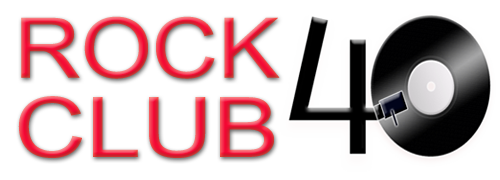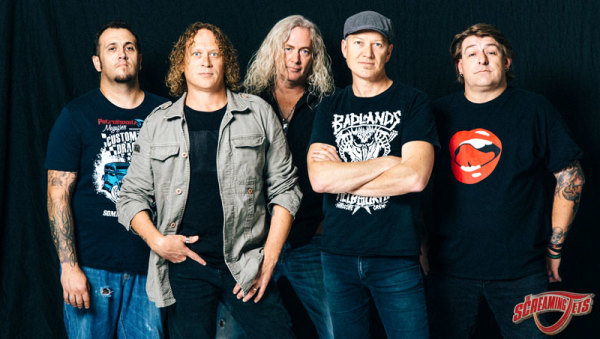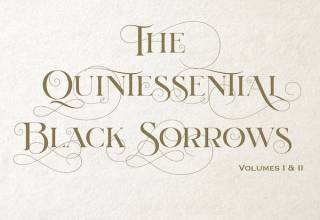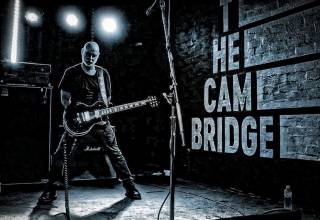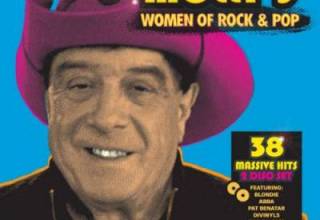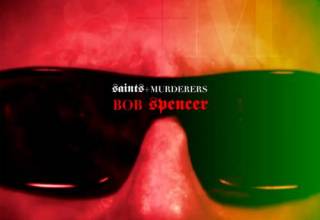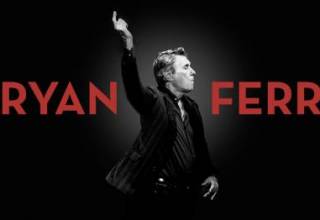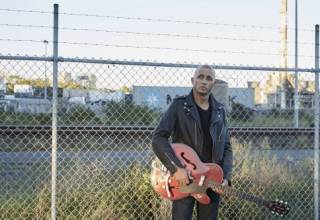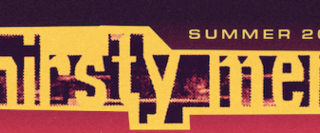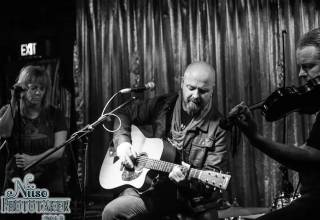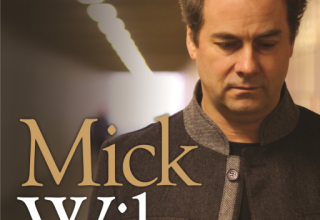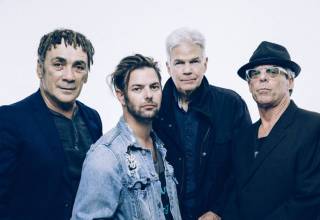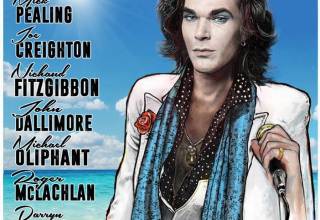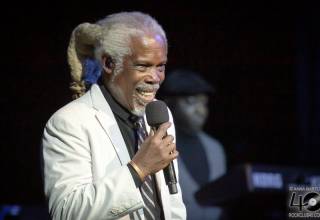The Screaming Jets’ latest album, Chrome, was released on the 6th of May. It’s the first studio album from the Screaming Jets in eight years. After listening to the album, I can confirm that there is no mistaking that it is a Screaming Jets album. It has tough lyrics and rocking guitar riffs and it will not disappoint their fans. Not only did I recently have the opportunity to listen to the album, I also had the opportunity to chat with guitarist Jimi Hocking about the writing, recording and touring of their latest release. His positive response to my comment about it being a typical Screaming Jets album did not go unnoticed.
“It’s the great debate in any band that you build up a fan base, a sound and a reputation and you wonder if you can stray too far from that path in some way. I mean we are all into evolution, but at the same token if you don’t really deliver a Screaming Jets record, then the Screaming Jets supporters will be disappointed so it’s a real catch 22.”
Jimi mentioned that the band have been through some rocky patches and hence they haven’t recorded for eight years but all that was forgotten when it came to recording this album. They were old mates back doing what they love.
“Dave and I started writing a couple of songs a couple of years ago, but we all agreed that Paul Woseen, the bass player, had been an amazing writer for the band all through its history. So we thought, to keep the same flavour of the Screaming Jets sound, we would charge him the task of writing the lion’s share of the material. That’s how we started the project.”
The band met in a rehearsal room with an acoustic guitar and worked on the songs as a band. As Jimi said, it was a rather organic approach. “What that meant was Scotty Kingman and myself worked on the guitar parts but we all contributed to the arrangements quite a lot, it was a real band project. We had a good time doing it as well.”
As I am not a song writer I found it interesting that they could all contribute to the songs in this way but not have that reflected in the song writing credits. I asked Jimi for his opinion on the song writing credits.
“That’s a grey area for a lot of people but I think over the years you develop a maturity of being able to differentiate if something is a song part or if something is an arrangement part. I know this is a subject that is sore for a lot of young bands because people feel that if they are part of any piece of the artistic puzzle they should be awarded song writing credit. I don’t necessarily agree with that. I have sessions where people send me material on an acoustic guitar or on a basic two track and I will add some guitar parts and I don’t consider that to be song writing on my part. Song writing generally revolves around the melody of the song and the chord structure we are building from so I think you really have to wear your producers head in some way to work out just how much a part of song it is and how much part of the arrangement it is.”
He went on to say “When you have written five songs you protect them and you are careful with them and worried about people stealing them. It might seem irrational but that’s how you are; but when you get to 500 songs then that doesn’t become an issue. You enjoy what you have done but you have a different mindset about it.”
Of course song writing is one thing, getting out there and performing your songs to the punters is another ball game altogether. I asked Jimi if he has a preference.
“We love to perform because at the end of the day that’s the cream. Going out and rocking out together and having people getting along. It’s a great vibe. No matter what style of band you are in, that’s a great experience to go out and have people appreciate what you do and have a good show.”
“It’s a holistic thing. We love all aspects of what you get to do in this industry. Right from the writing, rehearsing, in the studio. We love the studio. It’s actually a great creative environment for us. I think you take on all the different pieces of the puzzle as they come.”
Jimi went on to say that being in the studio can be artistic and indulgent, but also exhausting as it is often where the songs come together with different instruments, arrangements and much discussion about how it will translate live and of course each member has different ideas and influences.
Jimi joined the band in 1993, three years after the band formed, staying for 5 years before leaving to pursue his blues music interests. He spent a lot of time back and forth between Manhattan and Australia, before returning to the band years later.
“But even when I was away I was involved with what we were doing. Right from the outset everybody brought different inputs into the band regardless of how long the band had been around for. Dave loved country music you know. In the very early days when I would be driving around in the car with Dave, he would want to listen to old time country music acts. I loved blues and jazz so I had a whole different background. Paul loves the Brit Pop stuff and The Hollies. So we really did bring a weird stew together right from the start. People don’t get to see that; they just see the results in the records but there is a lot of push and pull into making those interesting cocktails in a way.”
The Chrome album has been well received on the live circuit.
“We are playing all the songs [from Chrome]. We put four or five of the new songs in the set on any night and then we switch it around. So we circulate all the songs,” Jimi explained.
“Last summer we did a tour and played a couple of songs which were instantly received well, which was encouraging as people didn’t have the album yet. But from the first release at the beginning of May, we did gigs that weekend and the following weekend in Adelaide, we immediately had people singing along to the choruses, digesting songs really quickly. It’s very encouraging. You like people to buy your records, that’s great of course, but to see that people know the songs means they are listening to the record and that’s another level of satisfaction.”
Releasing an album in 2016 without the backing of the big record companies of the 80’s and 90’s is a whole new game.
“I think it’s fair to say that everybody from the record companies to the artists, whether they are independent or major, have a very skewed idea of how to release records now. How many should you press? Are people buying hard copies or digital? It’s confusing. The fact that we are an older band, a heritage rock band I often say, we have a crowd that still relate to hard copies, so we sell a lot of hard copies straight away.”
The day I spoke to Jimi, the media were reporting that Flee from Red Hot Chilli Peppers had said rock and roll is dead. Reading beyond the headlines, Flee spoke about the change in the industry from just going out there and forming a band to thinking about hiring a PR manager and creating an image before forming the band.
Jimi responded by explaining that when he started out in the music industry there was an edginess to the music; they were scallywags who didn’t quite fit into the school system. He believes this edginess still exists but it is just a different environment now.
“YouTube is what independent radio used to be. A couple of the kids who have come to me for lessons will talk about who their favourite guitar players are. They mention everyone from Frank Zappa, Led Zeppelin to something more contemporary. That’s because YouTube doesn’t differentiate. When they sit there and watch a bunch of clips, they can watch something from the 60’s, 70’s or today. They have a different mindset and they know the power of Facebook, they know the power of social media. They are digital natives. That’s how they grow up, so of course they have a different attitude but I still see that those kids are trying to attempt something that is not too straight laced. The reason they are attracted towards stuff is the same reason I was when younger. It’s just more accessible to them now than it was when I was younger. Their inner ethos is still the same, just the industry itself has changed.”
The audiences that come to see The Screaming Jets have also changed, to a degree. The older fans are still there but the band knows there is also a new generation of fans.
“We see people bring their kids to the show. It’s corny but it’s amazing at the same time. A young girl came to the band room last night in Toowoomba and she said ‘I grew up with you guys.’ I said ‘How old are you?’ she said ‘I’m 20.’ I said ‘This band is older than your life cycle.’ She said her older brother was into the band so she grew up listening. She made sure she was off work yesterday so she could meet us. That was her big plan.”
Today the pubs may be slightly different to what they were in the 80’s and 90’s. But for bands like the Screaming Jets it is just great to be back touring.
“I wasn’t sure we would still be here after all these years. I always thought it was a good band but there is a lot of fire and ice about the band, like any good rock and roll band. The fact that now 25, 26 years later the band is still sellable, people want your records, people enjoy, we have great crowds, full houses; it’s quite remarkable really.”
“We bring the environment [of the venue] back to what we do. The crowd are there to see The Screaming Jets, and I’m sure this is the case for all the rock bands that are currently touring again. So the venue changes from an electro night club, if that’s the case on a Friday night, to a rock and roll room again. We are like a bunch of guys who go up to the skate park and take over. It becomes ours because we are the older guys.”
by Suzanne Bunker
Copyright © Suzanne Bunker 2016. All rights reserved
